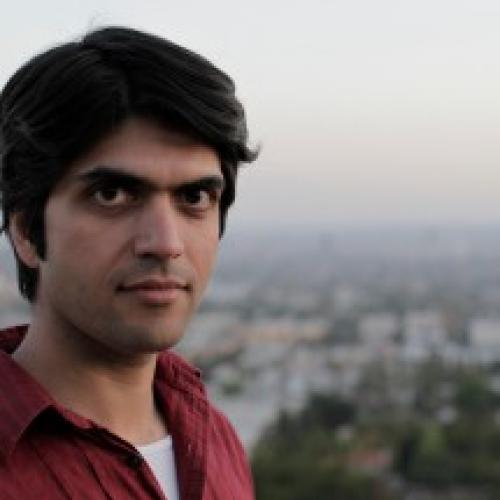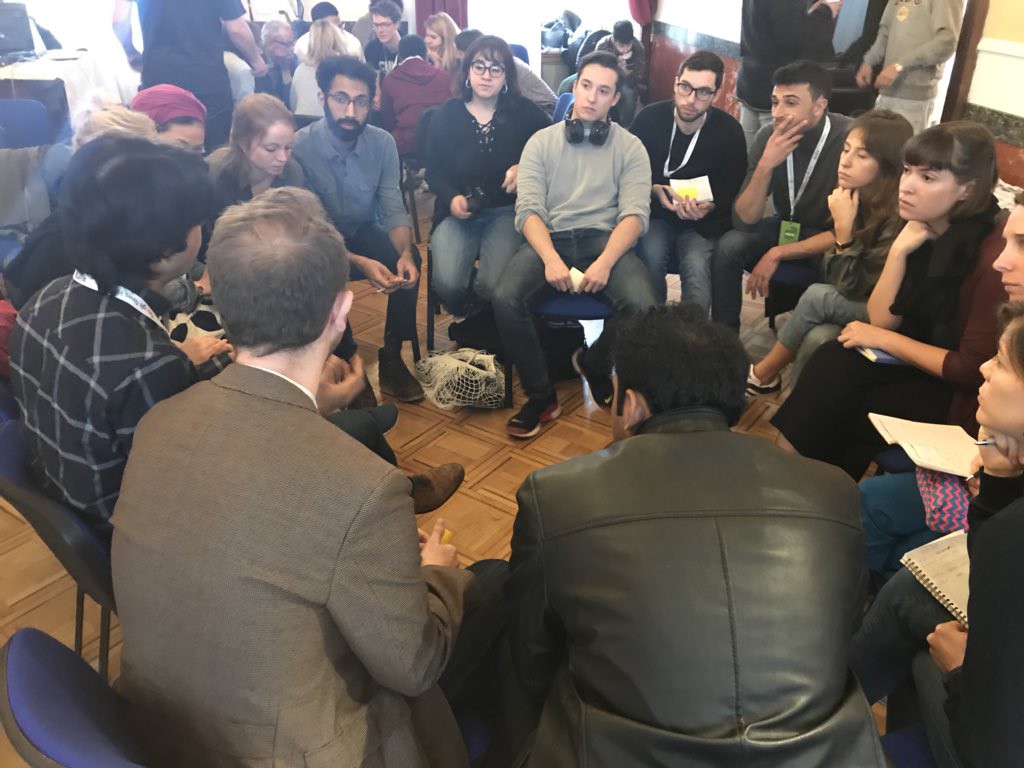
Martha managed the CLEW Journalism Network until February 2020. She developed network strategies and activities for energy reporters across the globe and helped launch the network platform in 2018. Prior to that, she was a correspondent at Index on Censorship, and also worked as policy researcher at a non-profit start-up.
CLEW works on fixes to climate reporting at journalism festival
„Journalism has failed” to transport the “menacing, important climate story to front pages of this world every week”, Alan Rusbridger, former editor-in-chief of the British daily newspaper The Guardian, told the audience at the International Journalism Festival in Perugia.
With this dire assessment from Rusbridger still ringing in their ears, more than 40 journalists took on the task of coming up with a roadmap to improve climate reporting in a workshop co-hosted by Clean Energy Wire’s network manager Martha Otwinowski, with 12 other media organisations.
“We want to focus on collecting, from all of you, the challenges that you experience or witness while conducting climate change reporting,” said Rina Tsubaki, founder of the Lookout Station, a new initiative from the European Forest Institute, that connects journalism and science through climate change and digital innovation.
“How might we break down silos, and cross political divides?”

The participants of the design-thinking inspired workshop included journalists from a range of countries across Europe, as well as India, Pakistan and Rwanda and all types of media outlets; after splitting up into three different groups – story, formats and resources – they jointly came up with a wide range of ideas on how to tackle the big challenges of reporting the real dangers of and the solutions to human-made climate change.
“How might we break down silos, and cross political divides?” was one central question that Alok Jha, public engagement fellow at the Wellcome Trust, identified drawing on the collective input. CLEW’s Otwinowski highlighted the approach at the Berlin-based non-profit energy transition news wire and journalism network. “International perspectives on mitigation efforts or policies implemented across the border give news audiences needed context on the developments in their own countries and result in a better understanding of the issues,” Otwinowski said.
The journalists found that including solutions to human-made climate change constituted another crucial way in which to give life to what is otherwise too often perceived as a dense, dry topic.
The outcome of the brainstorming session flowed into a directory comprising all potential solutions to common challenges: “Collaborative Ideation: Climate Change Reporting”. All climate and energy transition journalists who would like to contribute to this collective effort by adding their own experiences are invited to do so via this link.
The Clean Energy Wire will next join German sustainability journalism network Netzwerk Weitblick to discuss the collaborative journalism approach at the Deutsche Welle Global Media Forum in Bonn from 11 - 13 June.

